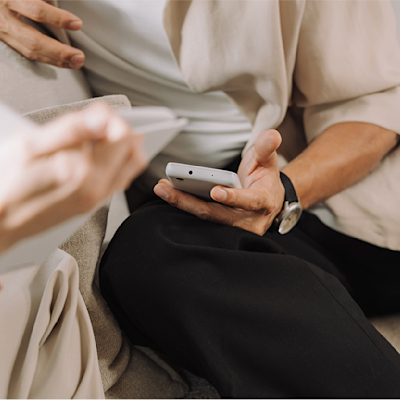
72 Hours Offline: A Digital Detox Experience
This article was written by a member of our team about their digital detox experience. Contrary to the title of this article, the total time spent offline was closer to 82 hours, that’s ten more hours than expected.
This is a real experiential account of the offline experience written from a group perspective. The project was realized by Offline Campus, a series of digital detox events based in Poland.
What does it mean to go ‘offline’?
Going offline doesn’t just refer to switching off your WiFi or unplugging your Ethernet cable.
It’s about so much more than that.
If the internet goes down, you can always distract yourself with video games, ebooks, television shows or films. What if you weren’t allowed to do any of those things?
Would you go outside, for a walk or a run? Read a book or play an instrument, perhaps attempt something new? When was the last time you truly felt boredom?
When was the last time you couldn’t turn to technology as a crutch?
By limiting your choices to offline pursuits, you might find yourself engaging in activities you’ve missed. Activities which may have been considered ‘things you don’t have time to do’.
People on a rural road looking at horses
Day One: Something is missing.
After ordering an Uber to take us to the meeting point at 9:30 AM, we abandoned our phones to the depths of our bags.
The journey took as long as it took as we chose not to use a GPS. Muscle memory kicked in quite early on, after several hours wrists were turned as if to look at a digital watch which wasn’t there, arms lifted to check for phones that weren’t in pockets and hands began to search for other things to occupy them!
Reaching for devices that weren’t there was just the beginning, after several hours it was as though we were experiencing phantom limb syndrome for a part of us which was never ours to begin with.
A digital extension of ourselves we’d gotten so used to that our bodies both physically and mentally reacted to it not being there.
On arriving at our new home (DOM Łowyń) for the next 72 hours, we were warmly welcomed and shown to our immaculate rooms, they were spacious, clean, minimal and comfortable.
The white and gray color scheme felt almost as though we were living in ‘the real world’ outside of the Matrix. Admittedly, at certain points, it did feel like a similar philosophical journey. The world of machines (of electronic devices) vs. the world without them.
We toured the building and admired the breathtaking views of the forest and lake.
Every window we looked out of had an Instagram worthy scene. It would have been constant #NoFilter moments.
In a way, our thoughts were so digitized a lot of us forgot to appreciate it for what it was, an amazing location with great views. We were struggling with our persistent “that would’ve made great desktop wallpaper” thoughts.
The menu was vegetarian (and gluten free), once unpacked, an incredible soup awaited us downstairs. We ate, waited for several other guests to arrive and then moved onto the balcony.
We took it in turns to describe why we chose to take part in the event and what we hoped to achieve from the experience. Why were we there? Most people mentioned yoga and relaxation, the rest of us were looking for an escape.
The ability to switch off, to unplug, to disconnect digitally and reconnect naturally or physically. Swapping our smartphones for analogue cameras and human interactions, our next adventure was a hike through the forest. There were no distractions, it was just us and the trees and the dirt road.
The final activity of the day was relaxation yoga where we learned about the concept of yoga nidra. This was an unexpectedly fascinating experience.
How much attention do you pay to relaxing before going to sleep? It’s interesting that we learned how to unwind without our phones.
We each placed a yoga mat and folded blanket on the floor. We followed the yogis instructions and started with a series of initial stretches, we the stretching was complete, we lay on the mat and folder blanket. Our heads were propped up by and our bodies were covered in blankets. Eyes closed, we listened to the ephemeral and soothing sounds of a luna drum and rain stick being played in the room.
As we lay there, more blankets were placed on us, creating a weighted cocoon, bean bags were placed over our eyes. It felt as though each of us was physically sinking into a new realm of relaxation, another level of calm. Going upstairs to bed afterwards, not knowing how early or late it was. We were very aware of how our bodies felt. Knowing that you’re tired means that your body wakes up as naturally as it fell asleep.
People in a yoga class preparing for warrior pose (Virabhadrasana I)
Day Two: No concept of time.
The sun was up and we rose with it. A flute was played at dawn to signify a new day. We ate our breakfast in silence, we were mindful of what was in front of us. An orchestra of mastication and the clinking of cutlery on crockery.
Stretches on the patio outside the yoga studio prepared us for the day. Although the activities were largely self oriented, we all took part in extensive yoga and group mindfulness sessions every day. During our free time, some of us chose to go running, others went horse riding, some walked, did crafts, played instruments and relaxed. Coming together for meals helped structure our day more efficiently. We entered an almost childlike state where our only responsibility was to come inside when food was ready.
Consider all the time you’ve wasted scrolling through profiles on social networks. Think of all the photos of your exes, dog videos, holiday photos and useless information you’ve gathered from the lives of others.
Wasting our time on mindless browsing was one of the main issues we all faced. We reflected upon the amount of free time we had without our electronic devices.
Without a fitness tracker (which doubles as a digital watch), it was hard to keep track of time. In fact, the entire concept of time was removed as a few of us had forgotten our regular watches (analogue) too, albeit by accident.
Unpaved road with evergreen trees and logs on either side
What happens when you wander through the forest? You get lost.
To step away from a life dictated by time is an irregular albeit intriguing feeling.
Being more mindful of everything we ate meant that our palates were consumed by intense flavours. Food seemed more satisfying than usual, there were no notifications between courses and our full attention was given to what was on our plates. When we’d had our fill, we played instruments and enjoyed novelty books together.
We saw a rabbit outside and found ourselves to be more appreciative of nature. There was also an incident with a deer but let’s not go into details.
A circle of logs was placed around a circle of large stones by the lake. That night we bonded by the bonfire during a full moon ceremony where we each wrote our problems on sheets of paper and placed them into the fire. We stayed with our problems and watched them burn. It wasn’t something any of us were used to but there was something poignant about the situation.
Day Three: Technology is inescapable.
The day began with the sounds of birds, a cowbell and the finishing of homework given to us by our mindfulness instructor the day before. We learned about knowing yourself and your own abilities in order to remain more present, being accepting of yourself, of others, of situations beyond your control and wholly embracing the role of yourself as the observer of your life.
Our mindfulness journey was more about philosophy and psychology than it was about spirituality, simple meditation or breathing techniques normally associated with the practice. This was interpreted positively as sharing our thought processes with a group of strangers brought together in this unusual place took us even further out of our comfort zones.
Phones were in use every now and then by some of the group and by the hosts. Those of us whose devices were locked away noticed others who were in possession of theirs. We weren’t tempted to borrow their devices but instead realised the relevance of our lack of devices.
The occasional ringtone was heard two or three times, which when you consider the number of people and the number of days we stayed, wasn’t so bad. On hearing someone’s phone during one of the meals, we all made a collective sound of joking disapproval.
It was a light hearted response to an issue most of us deal with daily, eating whilst watching television, eating whilst on the phone, eating whilst using a laptop at work and so on. A meal disturbed by a ringtone was the perfect example of why we were taking part in a digital detox.
A photo of treetops and blue sky taken with an analog camera
Day Four: Never look back.
Being back at home, back at work and back to reality, it’s clear that taking part in events that occur outside of our comfort zones are growing ever more significant.
Those of us who didn’t expect that parting with our electronic devices would be a positive experience were pleasantly surprised. Some weren’t able to complete the challenge of remaining offline as their home lives interfered with what some would consider a selfish endeavor.
Removing yourself from one world and embracing another, for the sake of yourself, could be considered negative by those not involved. It’s a good idea to include loved ones or friends so that there is no confusion as to why you’re not contactable during an offline event.
You deserve time to breathe, without notifications, without phone calls, without emails.
Make time for yourself.
We’d Love to Hear from You
Is there anything you’d like to add, have we missed anything? If you’re interested in sharing your experiences with us or writing a guest post for us, send us an email via hello@mudita.com!
Please feel free to get in touch via social media (send us some photos or videos too), you can find us on Facebook, Twitter and Instagram, let’s connect! To learn more about Mudita, take a look at our website and our other posts.
If you enjoyed reading this article, please share and recommend it!
Related stories

The Wait Is Almost Over: Mudita Kompakt Ships Next Week!
Mudita Kompakt is ready to ship. Last call for pre-order pricing ends April 20. Experience this award-winning minimalist E Ink phone & discover digital balance.

How Good Is Your Tech-Life Balance? Take Mudita's Quiz & Find Out
Is your tech use mindful or overwhelming? Take our Mudita Tech-Life Balance Quiz to find out—and get tips to create a healthier, more intentional digital life.

Mudita Kompakt Wins Prestigious iF Design Award
Mudita Kompakt wins the iF Design Award 2025 for its minimalist, distraction-free design. Explore how this mindful phone redefines digital well-being & privacy.
If you'd like to receive the best stories from our blog, keep up to date with our progress and get notified about our product releases and special discounts.